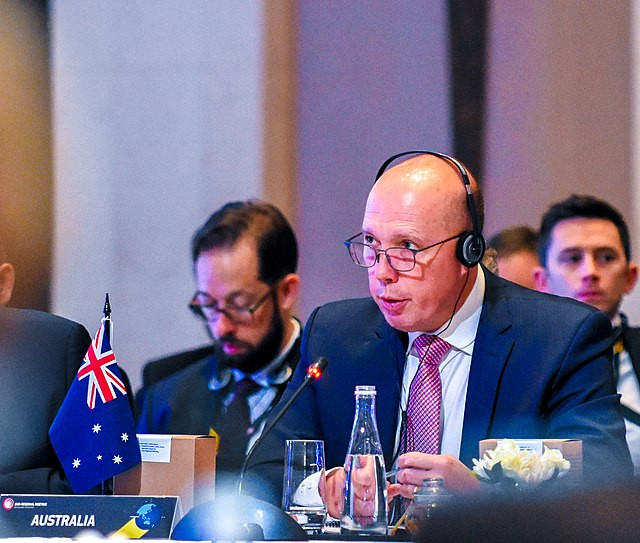Peter Dutton Proposes AU$20,000 Tax Break For Small Business Meal Expenses

Australia's opposition leader, Peter Dutton, unveiled a new plan to support small businesses by allowing those with a turnover under AU$10 million to claim tax deductions of up to AU$20,000 for meal and entertainment expenses.
This measure, which would run for two years, would be exempt from Fringe Benefits Tax (FBT) and exclude alcohol from eligibility, reported The Guardian.
"This is a win for the small business spending the money on their staff or clients, and a win for the hospitality venues who will see an increased spend in their businesses," Dutton said. "Cafes, restaurants, clubs and pubs are the lifeblood of so many local economies around the country."
The initiative is seen as part of the Coalition's broader strategy to win over small businesses, as Dutton looks to regain support in inner-city Brisbane seats ahead of the federal election, due by May 17.
He pitched the idea, while addressing a campaign rally in Ryan, a former Coalition stronghold that was lost to the Greens in 2022.
The policy revives the 1980 "long lunch" era, when employers could deduct the cost of boozy business meals with their staff -- until the Hawke government introduced the FBT in 1986, making such outings no longer tax-effective, AFR reported.
Treasurer Jim Chalmers dismissed the Coalition's announcement as "not a serious policy proposal," but stopped short of ruling out matching the commitment once more details emerged.
"Dutton needs to come clean on the details, like what is eligible, what it costs and what they are going to cut to pay for it," a spokesman for Chalmers said Monday. "After three years in opposition, it beggars belief that the Coalition are still yet to provide a single costed or credible policy and this is the best they can come up with."
Prime Minister Anthony Albanese criticized the policy, arguing that it had not been fully costed. Speaking to reporters in Sydney, Albanese cited Dutton's opposition to energy bill relief and other measures aimed at helping small businesses, accusing the opposition leader of being inconsistent in supporting business-friendly policies.
Under current rules, if a small business takes staff out for lunch, it must pay FBT unless the meal costs less than AU$300 per person. In that case, it's not taxed, but also not tax-deductible.
Dutton's "tax-free lunch" proposal has been welcomed by hospitality and small business groups, who see it as a step toward reducing bureaucratic red tape. By exempting these deductions from FBT, Dutton suggested the policy would simplify the tax process for businesses and ease the burden of navigating what he called "a complicated tax jungle," reported ABC News.
The Council of Small Business Organisations Australia has hailed the proposal as a "shot in the arm" for the industry, while the Australian Restaurant and Cafe Association called it a "transformative tax reform policy."
However, businesses would need to keep track of additional receipts to claim the deductions, and they would be subject to compliance guidelines from the Australian Taxation Office. This includes defining what constitutes an appropriate "entertainment expense," a term that could be open to interpretation.
In addition to this proposal, the Coalition has previously pledged to make the instant asset tax write-off for small businesses permanent and to increase the threshold from AU$20,000 to AU$30,000.
© Copyright 2025 IBTimes AU. All rights reserved.





















